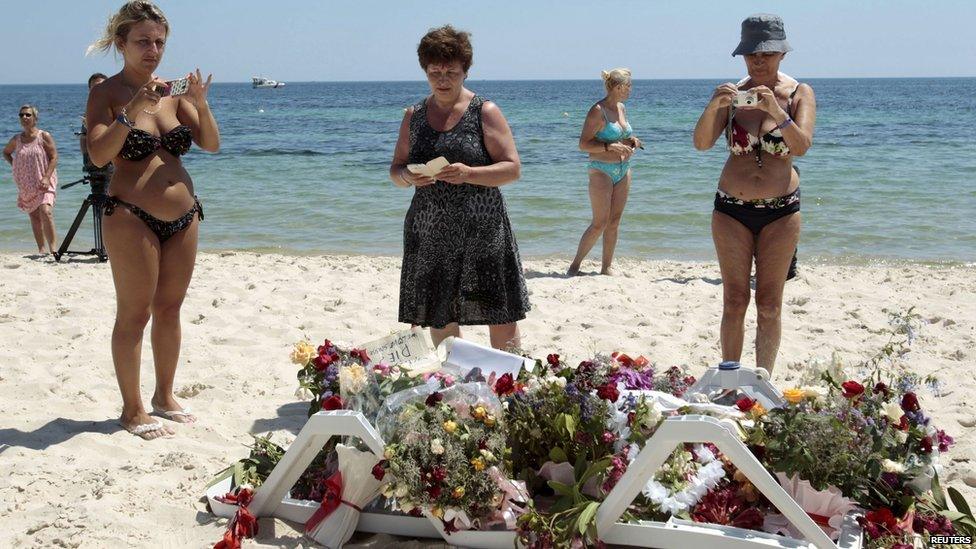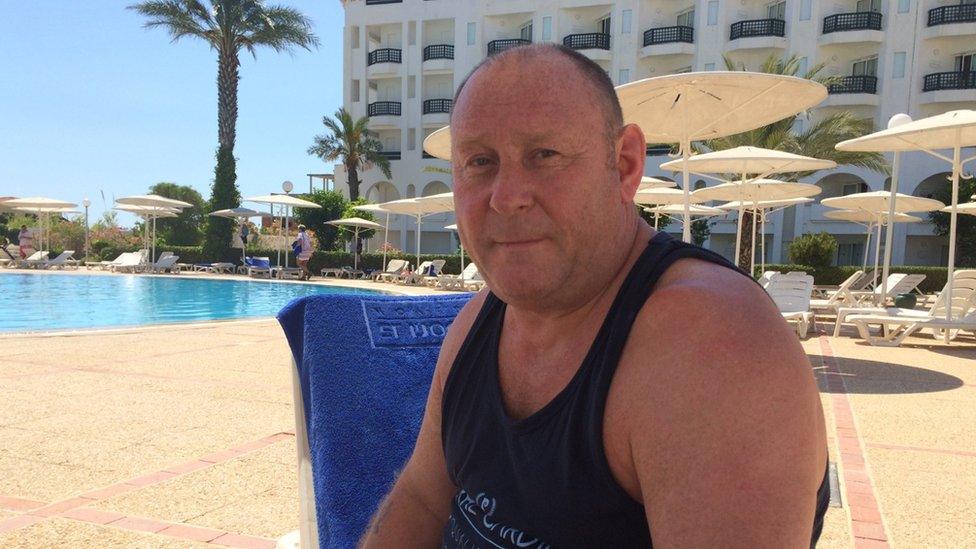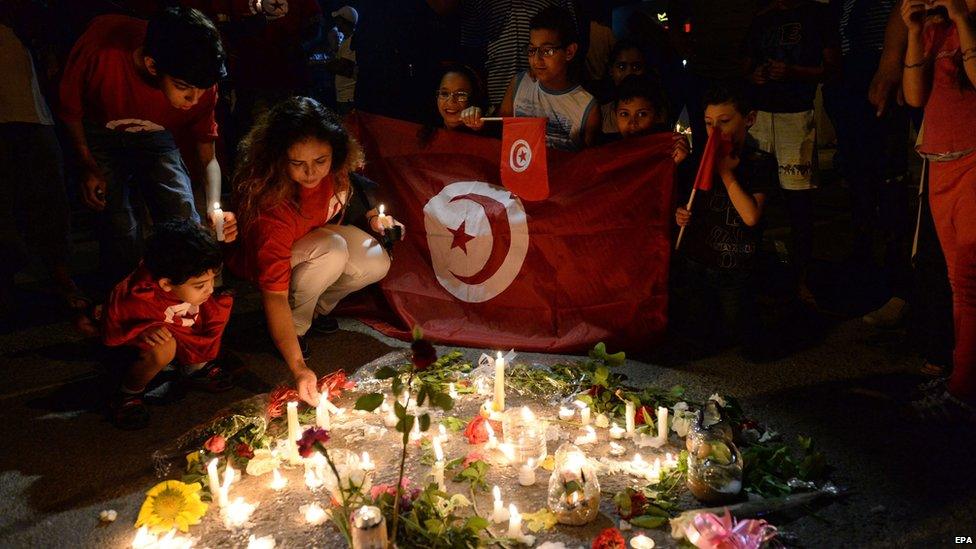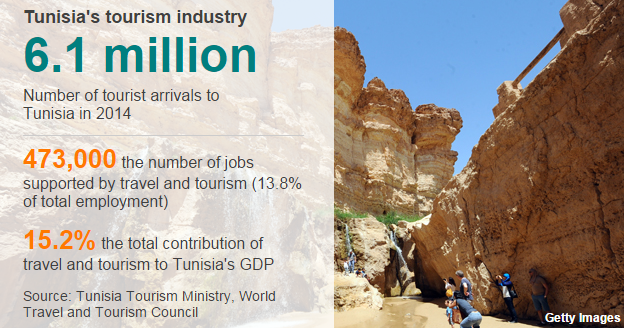Tunisia attack: Emotional scars still raw after Sousse shootings
- Published

The beach area where the attack happened reopened on Sunday
There's little trace of the horror - just a sunbed draped in flowers.
The beach where Seifeddine Rezgui stood on Friday, pulled a Kalashnikov from his parasol and unleashed Tunisia's worst ever terror attack, has already reopened.
Camera crews capture the spot; passers-by pause for a moment. But the emotional scars of the tragedy that took place will live on for a generation.
For 57-year-old Sabi, they're still raw. He runs the boat club on the beach, used principally by customers of the Hotel Imperial, targeted that day.
He points to the spot where the gunman opened fire, appearing first to make a phone call, before throwing his mobile into the sea and beginning his killing spree.
"People all around me were falling", he recalls, "and I just grabbed as many customers as I could and ran." They went through a staff gate to a basement of the hotel - but Sabi returned to bring more to safety.
"I saw six of our loyal customers die, people who always came to this hotel. They were like brothers to me. This beach should be full of life now. But it's deserted."
Sabi pauses, looking at the rows of empty sunbeds. "We will fight", he says, his lip quivering, tears welling up. "At least we can still smile".

Bob Taylor is one of those who decided to stay in Sousse, saying he didn't want the extremists to win
Tunisia is a nation in shock - and its tourism lifeline is under serious threat.
Thousands of holidaymakers have already left on emergency flights laid on by tour operators.
I watched as another busload from the Hotel Imperial arrived at the local Enfidha airport on Saturday night, heading for Manchester. Among them was one man whose fiancee had died in front of him. Most were too traumatised to talk.
But in the hotels beside the Imperial, dozens are staying put. "I wanted to leave early", says Isabelle Campbell from Gateshead, "but my husband said: if we go, they win. I'm not relaxed though, I'm nervous about going to the beach."
Her husband, Bob Taylor, says they ventured down earlier and saw a speed-boat manoeuvring in the water, revving its engines towards them. "For a moment, we thought: Oh God, something is going to happen again. We used to go to Egypt but changed to Tunisia because of the security threat there", he adds. "Now we don't know what'll happen here."

As after the attack on the Bardo Museum, Tunisians have rallied against violence
'We miss peace'
One in ten Tunisians works in the tourism industry. It took a hit after the attack on the Bardo museum in March - and is now widely expected to plummet.
The fear of that has only added to Tunisians' anguish over a worrying rise in Islamist attacks. The birthplace of the Arab Spring, which was widely praised for its largely peaceful transition to democracy, now has more people fighting in Syria and Iraq than any other country: an estimated 3,000 Tunisians are thought to be there, many feared to have joined so-called Islamic State (IS).
A once peaceful Arab democracy has been shaken by the chaos and civil conflict of neighbouring Libya, where IS has taken root and is thought to train increasing numbers of Tunisians crossing a porous border.
It is all a vast challenge for Tunisia's new coalition government, which has scrambled to announce a security clampdown, including the closure of 80 mosques suspected of being breeding grounds for radical Islam. Critics say the reaction has been too late.
"These people want to destroy Tunisia," says Dorra Brahem, a local student, walking on the beach with her sister Aisha and friend Fatma. "They have misunderstood Islam. Something serious is happening here".
Has the joy of Tunisia's revolution died, I ask?
"Yes", says Dorra. "At least now we can wear headscarves and go to mosques - with the old dictator, it wasn't like that. But we miss something. We miss peace."
Tunisia's tourism industry
6.1 million
the number of tourist arrivals to Tunisia in 2014
-
15.2% the total contribution of travel and tourism to Tunisia's GDP
-
473,000 the number of jobs supported by travel and tourism (13.8% of total employment)



We are seeking your stories relating to the Tunisia attacks. If you or anyone you know has been affected please contact us in the following ways.
Please include a contact number if you are willing to speak to a BBC journalist.
Whatsapp: +44 7525 900971
Tweet: @BBC_HaveYourSay, external
Send an SMS or MMS to 61124